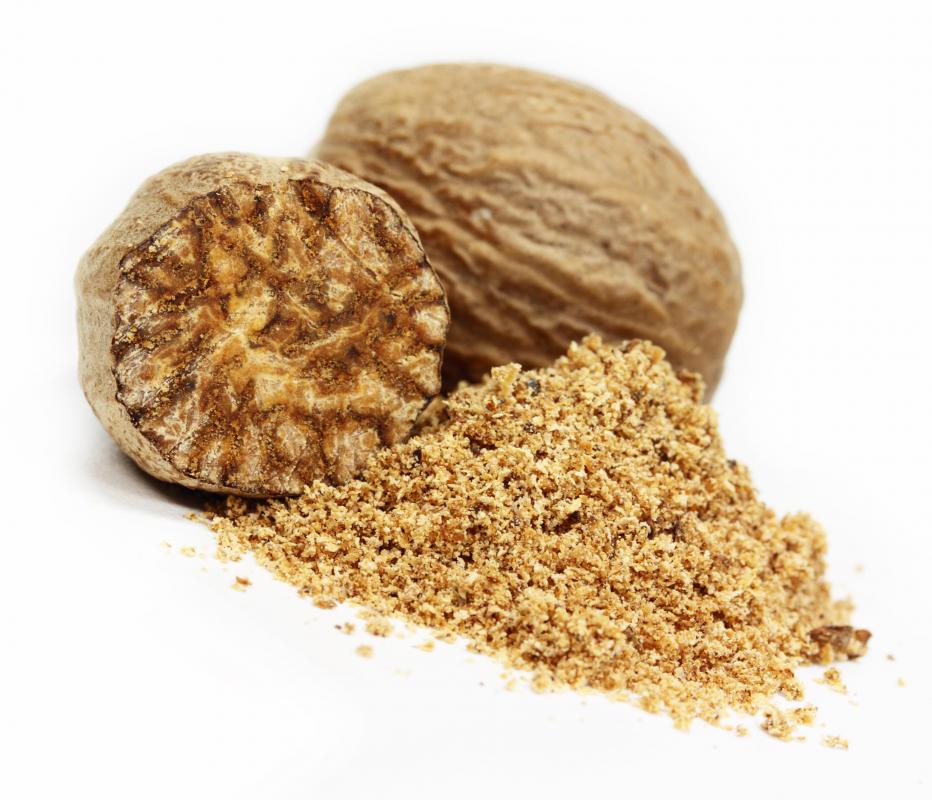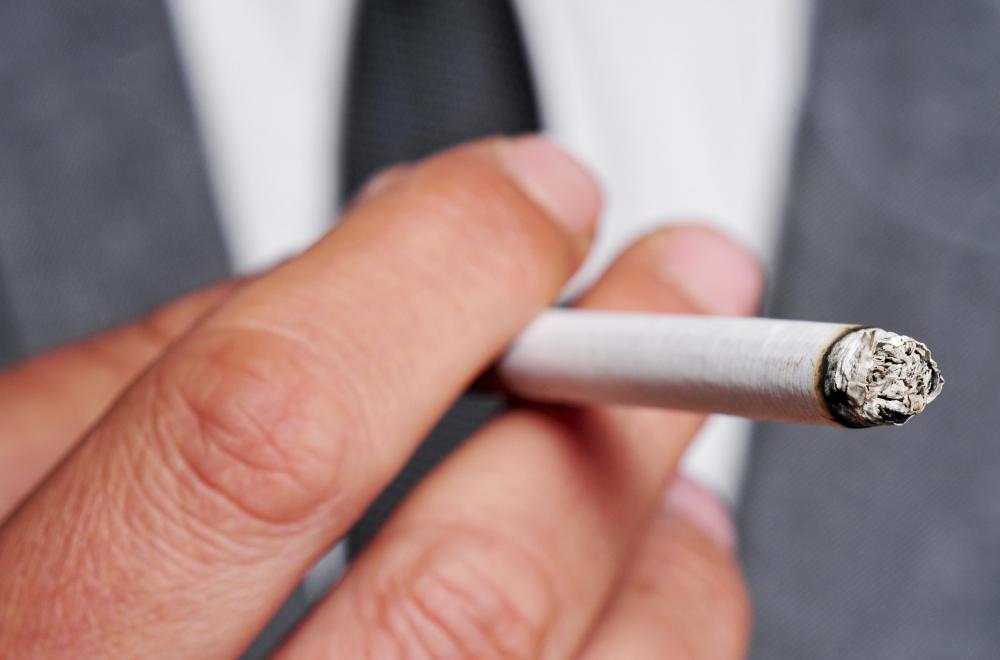At TheHealthBoard, we're committed to delivering accurate, trustworthy information. Our expert-authored content is rigorously fact-checked and sourced from credible authorities. Discover how we uphold the highest standards in providing you with reliable knowledge.
What is Eugenol?
Eugenol is a compound found in certain plants, such as basil, cinnamon, lemon balm, and nutmeg, but is primarily extracted from clove plants. When extracted, it appears as a clear yellow liquid that smells strongly of clove. It has medicinal value, but it is also used in products such as perfume and clove-flavored cigarettes. Although it is generally considered safe, eugenol may be harmful to people if it is used above the recommended doses.
In medicine, eugenol is used as an antiseptic and an anesthetic. It is believed to relieve pain when applied to skin or to other injured body parts as well. Some men even apply the liquid to their genitals to prevent premature ejaculation. In dentistry, it is often applied to cavities, used during restorative procedures, and rubbed on the gums to numb them before dentures are inserted.

Eugenol also is commonly used as an additive in a particular kind of cigarette, called clove cigarettes. It is also used to attract insects, such as bees, for research purposes. Some people value the compound because it absorbs ultraviolet rays as well.
Despite its varied uses, eugenol may be dangerous, particularly if more than the recommended dosage is taken. In some cases, the compound may cause liver damage. In other cases, it may cause convulsions, nausea, rapid heart beat, and dizziness. Some research studies have indicated that it may be an immune system toxicant, and many people believe it may cause mutations in the body's DNA, leading to cancer. Eugenol typically is safest when taken with food. Researchers do not believe the compound is safe for children, breastfeeding mothers, or pregnant women.

If a person is going to go through surgery, it is generally advised that the person cease using this compound for at least two weeks ahead of time. The compound is thought to slow the clotting of blood. As a result, it may cause extreme and dangerous levels of bleeding at the surgical site. For this same reason, people who suffer from blood-clotting disorders or other bleeding disorders should not consume eugenol.

Although it may be prescribed by a dentist or medical doctor, eugenol may also be purchased at some drug stores or through the Internet. If purchasing it from the Internet, it is essential to make sure it comes from a reputable source. Any questions or concerns should be addressed by a medical consultant before using eugenol, as well.
AS FEATURED ON:
AS FEATURED ON:















Discussion Comments
Is eugenol useful for hair loss, namely alopecia? Some Sudanese biochemist produced a hair cosmetic (hair control solution) alleging that it can restore hair lost for any reason, even alopecia androgenetica, claiming that there is no link between DHT and balding. He has a patent from Switzerland and has opened hair centers in both Toyko, Japan, and Khartoum, Sudan.
@Oceana - My wife and I were looking after her friend’s toddler one night. We had left a vial of eugenol oil on the counter, not thinking that it would in any way appeal to a small child. Well, she grabbed it and swallowed some.
We immediately rushed her to the hospital, where they checked her pulse, blood pressure, and temperature. Like you, she had burns all the way down her throat. They gave her a breathing tube and an IV with medication. They also inserted a tube into her stomach to cleanse it out.
The doctor told us that if she made it past 48 hours, she would likely recover completely. She did, but we had never felt such dread!
As a child, I experimented with mischief by drinking and eating strange things to shock my babysitters. I remember taking a big swig of eugenol oil and landing in the hospital because of it.
My babysitter saw me do it, but she didn’t think the oil was dangerous until she saw that I couldn’t catch my breath. In just a short while, I began coughing up blood. She looked in my mouth and saw burns there, as well as down my throat. She called the Poison Control Center. They told her not to induce vomiting and to get me to the ER.
I have never swallowed another thing for shock factor since that day. I have never been so sick in my life!
I watched a show on the cooking channel a few nights ago, and it discussed a use for eugenol that has gone out of fashion now but was once popular. It used to be the method for making vanillin.
Vanillin is vanilla’s artificial substitute. When it was first made commercially, the manufacturers chose eugenol because it was readily available. When times and science progressed, they found another way.
Currently, vanillin is made from a wood byproduct generated through the pulp industry. It seems strange to go from using a spicy oil to using wood to give an artificial extract its flavor.
My husband’s brother-in-law gave him a clove cigarette to try once. The eugenol in it made him pretty sick. He said that lighting that thing up and taking a puff was a disgusting experience he will never forget.
He found the flavor itself repulsive. Not wanting to be rude, he went ahead and took a few drags, but within minutes, he became nauseated. He didn’t vomit, but he did have to lie down to recover for awhile.
I guess some people are just sensitive to eugenol. The guy who gave it to him smokes them regularly and doesn’t experience any bad effects.
Post your comments